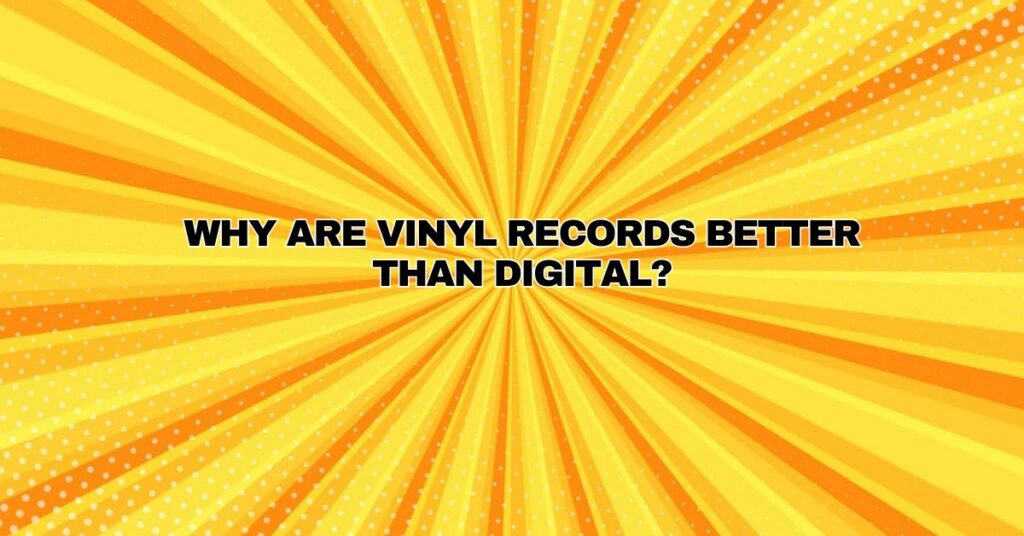In an era dominated by digital convenience, vinyl records have staged a remarkable comeback, captivating a new generation of music enthusiasts and audiophiles. While digital formats have undoubtedly revolutionized the way we consume music, vinyl records offer a unique and irreplaceable listening experience that many argue surpasses their digital counterparts. In this comprehensive article, we will explore the reasons why vinyl records are considered superior to digital formats and why they continue to hold a special place in the hearts of music lovers.
1. Analog Warmth and Authenticity
One of the primary reasons vinyl records are cherished is their analog warmth and authenticity. Vinyl is an analog format, capturing the continuous, undulating grooves of sound waves on the record’s surface. This analog nature results in a rich, organic sound quality that many argue is more faithful to the original recording. Vinyl records reproduce music in a way that retains the nuances and imperfections of the performance, providing a genuine and immersive listening experience.
2. High-Quality Sound Reproduction
Vinyl records can deliver high-quality sound reproduction, especially when played on a well-maintained turntable with a quality cartridge and stylus. Audiophiles appreciate the dynamic range, depth, and clarity of vinyl records, which can surpass the compressed audio of digital formats like MP3. The analog format’s ability to capture subtleties in music, such as delicate instrument timbres and intricate details, contributes to an exceptional listening experience.
3. Tangible and Collectible
Vinyl records have a tangible, collectible quality that digital files lack. Album covers, liner notes, and artwork add an aesthetic dimension to the music, making the vinyl record a complete sensory experience. Collectors value the history, rarity, and physicality of vinyl records, often scouring record stores and online marketplaces in search of coveted editions.
4. Immersive Listening Ritual
Playing a vinyl record is a deliberate and immersive ritual. It involves carefully placing the record on the turntable, gently lowering the stylus, and actively engaging with the music. This tactile engagement allows listeners to connect with the music on a deeper level, creating a sense of anticipation and intimacy that is less prevalent in digital playback.
5. Vinyl’s Resurgence and Record Reissues
The resurgence of vinyl records has prompted many artists and labels to release new albums and reissue classic titles on vinyl. This trend has led to a revitalization of the vinyl production industry, ensuring that both vintage and contemporary music is available in analog format. As a result, listeners can enjoy a wide range of music genres on vinyl, from rock classics to modern indie releases.
6. Preservation of Music History
Vinyl records have played a pivotal role in preserving the history of music. Many iconic albums and legendary performances are etched into the grooves of vinyl records. Collectors and enthusiasts view vinyl records as historical artifacts, preserving the sonic and cultural legacy of different eras in music.
Conclusion
While digital formats have undoubtedly democratized music consumption, vinyl records offer a distinct listening experience that transcends convenience. Their analog warmth, high-quality sound reproduction, tangibility, and immersive rituals make vinyl records a preferred choice for many audiophiles and music enthusiasts. The vinyl resurgence, along with record reissues and the preservation of music history, ensures that vinyl records continue to thrive in the digital age, providing a timeless and authentic way to experience the beauty of music. Vinyl’s enduring appeal lies in its ability to offer a unique, tangible, and emotionally resonant connection to the art of sound.


